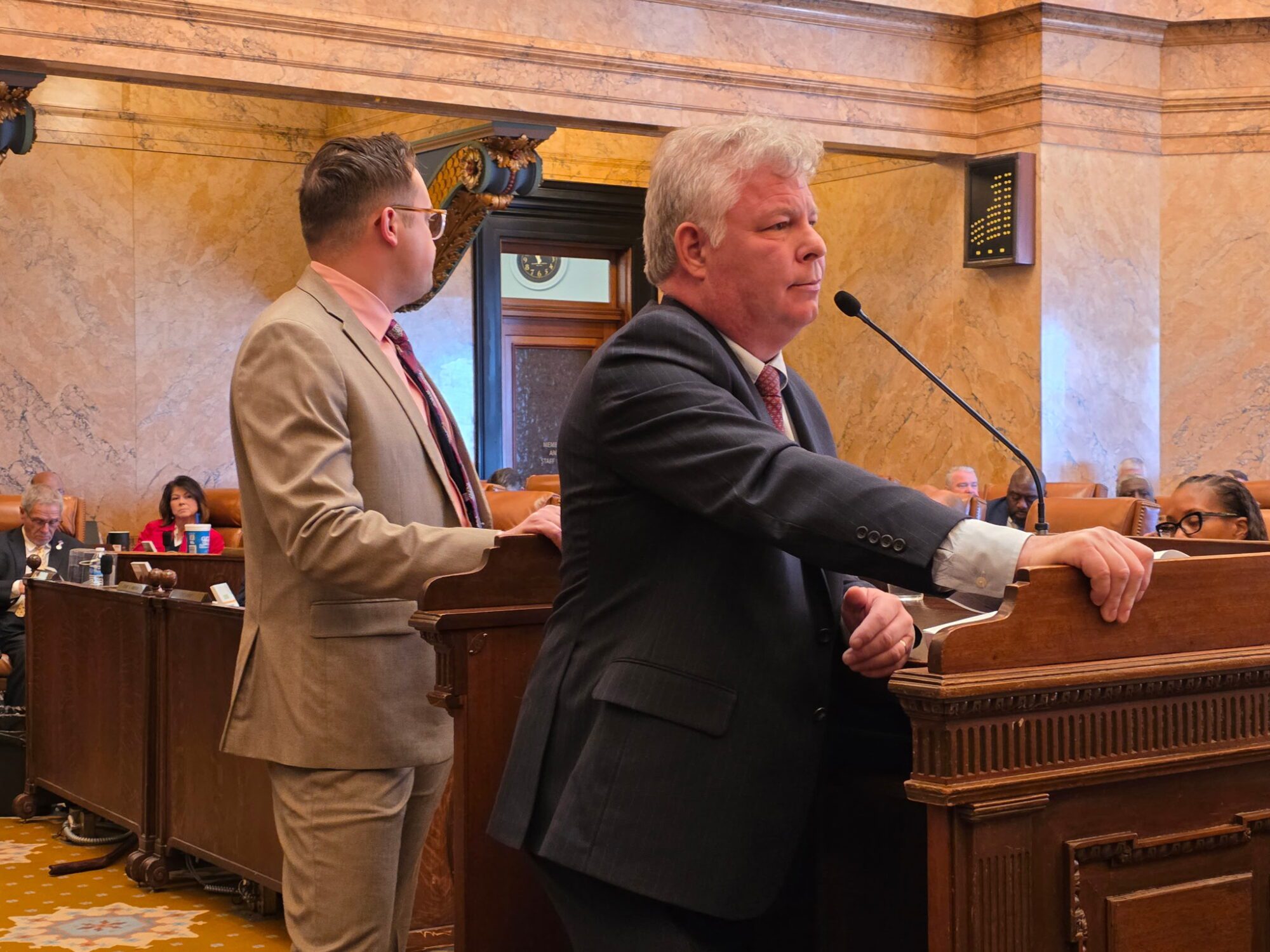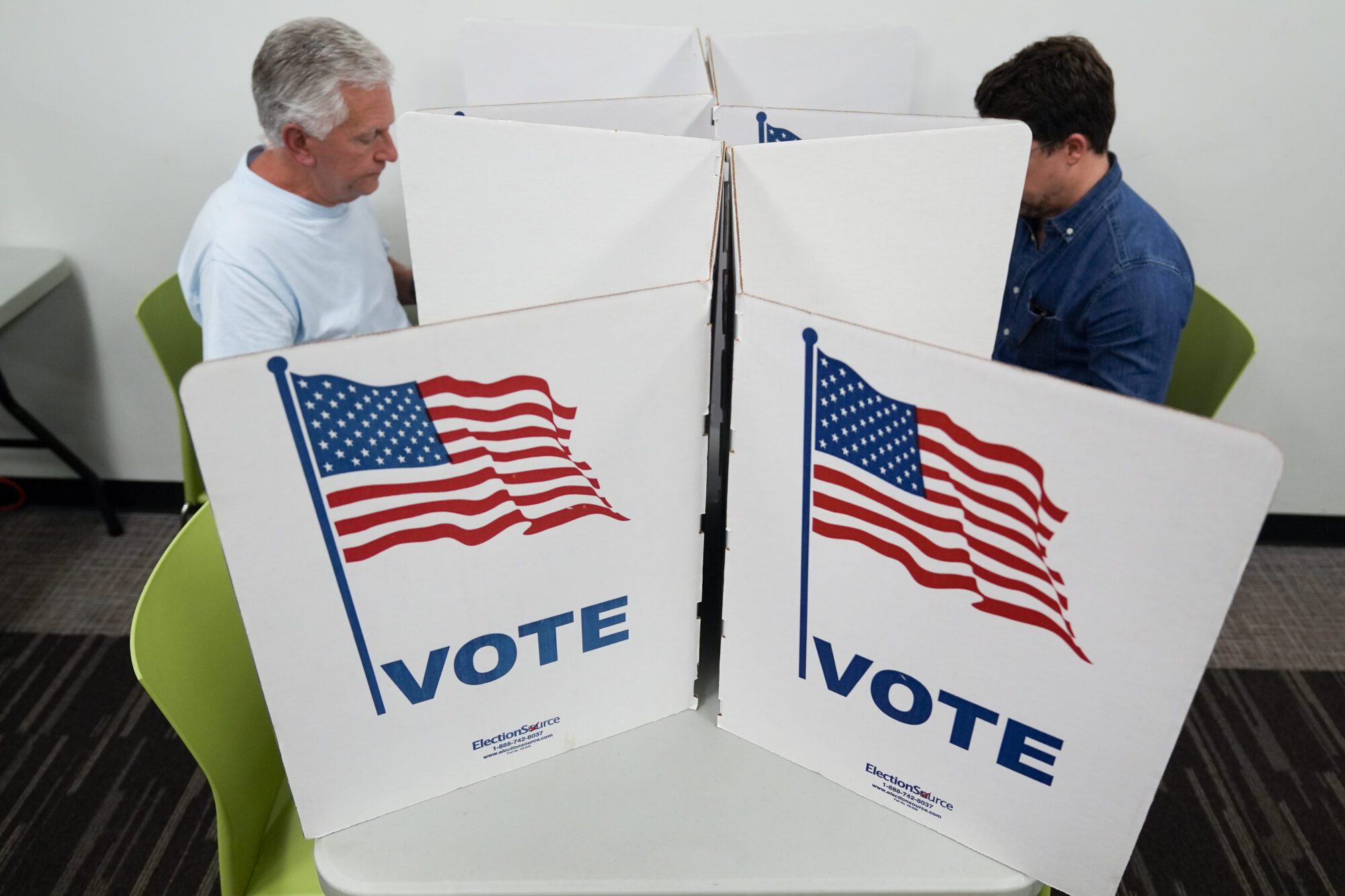
- Beginning in 2025, families of all Arkansas students will have access to funding up to approximately $6,660 for education-related expenses.
In recent years, states surrounding Mississippi have taken big steps to expand access to school choice programs in their states. These programs give families options on how and where their children education. Magnolia Tribune will take a look at how other states in the Southeastern region have brought school choice to their students in the coming weeks, starting with our neighbors to the northwest.
Magnolia Tribune spoke with legislators in Arkansas who played a key role in ensuring its passage. A key component of the LEARNS Act created Educational Freedom Accounts, which will be available to all Arkansas students beginning in 2025.
The Arkansas LEARNS Act was signed into law by Governor Sarah Huckabee Sanders in March 2023. It’s a multi-pronged piece of legislation, which tackled several issues the state was facing within its education system.
- Created a phased-in implementation of Educational Freedom Accounts, which will allow all families in Arkansas access to up to $6,600, which can be used for education-related expenses, such as private school tuition, tutoring, or textbooks.
- Raised the minimum starting teacher pay from $36,000 to $50,000.
- Created a merit-based bonus system with bonuses ranging from $1,500 to $10,000.

According to Ed Choice, a nonprofit dedicated to advancing school choice, enrollment in the Educational Freedom Accounts was capped at 1.5% of public school enrollment in year one of the program and 3% in year two.
However, beginning in the 2025-2026 school year, all Arkansas students will be eligible to participate in the program and receive funding.
Rep. Keith Brooks (R-Little Rock), who was the bill’s main sponsor when it went through the Arkansas House of Representatives, told Magnolia Tribune that the education savings accounts have gotten “the most news and probably the most controversy.”
Brooks said that he’s seeing the bill have an impact already on families who would otherwise be stretched to make ends meet in order to provide for their children’s educational needs.
“So specifically the Education Freedom Accounts, EFAs, we’ve seen a a really strong uptick in families who, frankly, in the past would have to make significant sacrifices and at times some are making significant sacrifices, because they see a specific school setting as one that best fits their students needs,” Brooks said. “Now we’re seeing families who are able to take advantage of opportunities that they may not have been able to otherwise.”
“It’s not rare for me to get phone calls or text messages, emails, saying, ‘hey, this has impacted my life,’” he added.
Brooks also had a piece of advice to Mississippi legislators seeking to bring school choice to the Magnolia State: Be bold.
“You know, obviously, you’re going to get pushback. That’s fine. I had a competitive election this year, but I won in pretty much a landslide, and so the voters are very positive when it comes to the ideas of supporting our teachers and supporting kids. Voters are very, very confident that’s an important priority, an important value,” Brooks said.
Another key component of the LEARNS Act increased the minimum pay for teachers to $50,000, which Brooks believes will incentivize teachers to relocate to Arkansas.
“What a what a great opportunity if you had a young, married couple who both want to teach school and say, you know, ‘my husband wants to be a football coach and i want to teach biology.’ What a great story it is to jump right out of college and move to Arkansas, and as a combined family income, like a hundred thousand a year with low cost of living. That’s a great story to tell,” Brooks said.
In recent years, Mississippi has passed multiple teacher pay raises, including the largest in state history in 2022. However, these raises were not coupled with any sort of policy reforms to expand choice for parents.
Arkansas Rep. David Ray, a cosponsor of the LEARNS Act, said the legislation has been a “game changer” for parents of students with disabilities. Students with learning disabilities were eligible to enroll in the Educational Freedom Accounts in year one of its creation.
Ray said the funding allowed parents to enroll their children in schools such as The Academy at Riverdale in Little Rock, which is a private school that serves children with developmental disabilities.
“You know, that’s the type of education that was previously just not affordable for a lot of families. There are literally families that will drive round-trip every day from Hot Sorings to Little Rock and from Brinkley to Little Rock. Yeah, that’s over an hour in each direction,” Ray said. “You know, but that’s what a loving parent would do to give their child the type of education that they need, but they may not be able to afford it or were it not for the LEARNS Act, right? So I’m a huge believer in this.”
Mississippi does have on its books education savings accounts that allow family with special needs students to make spending arrangements outside of the public school where they live for their children’s education.









